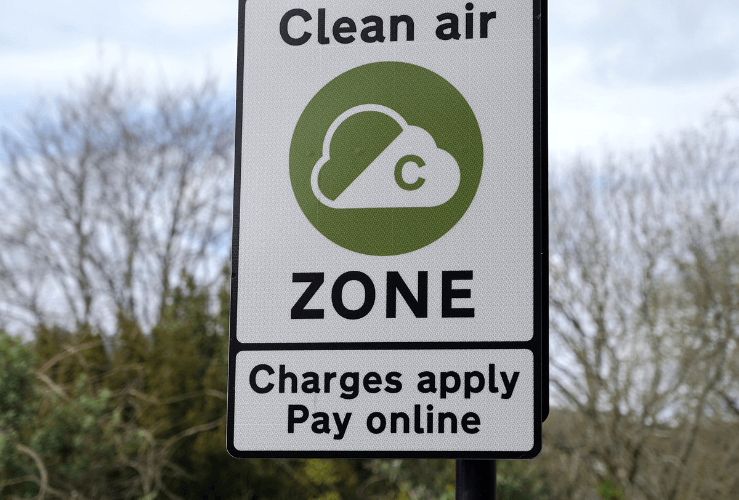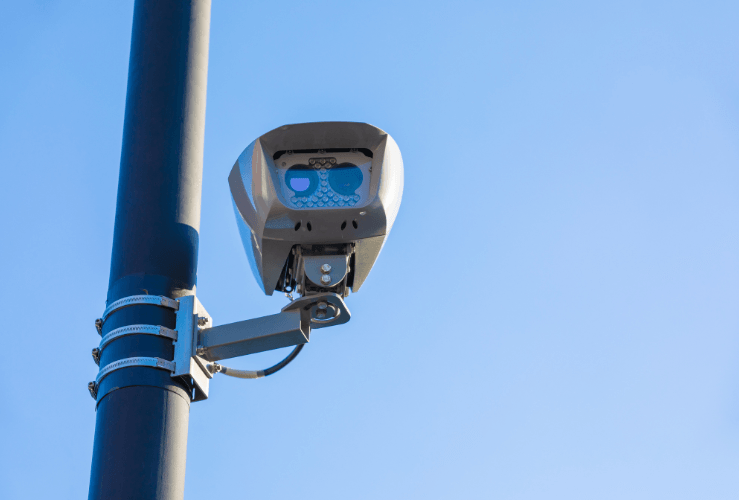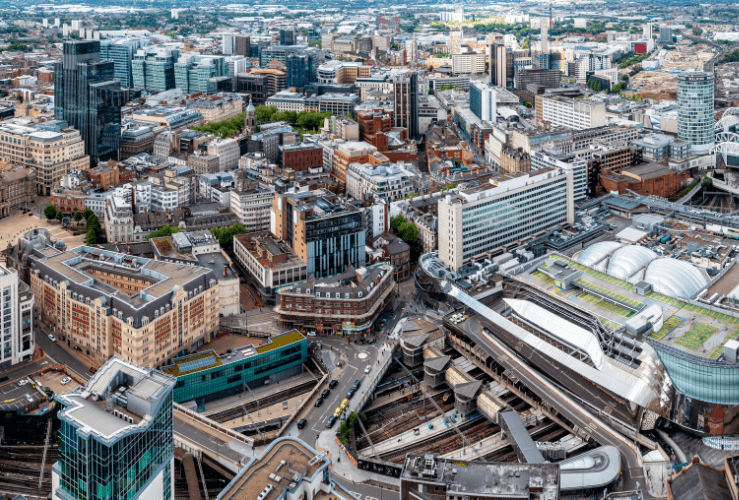Where are the UK’s Clean Air Zones? Which vehicles have to pay the charge? How much does it cost? Learn all about Clean Air Zones in our guide…
Clean Air Zones are urban areas where certain high-emission vehicles must pay a charge to drive in them. These zones have been set up to help reduce air pollution, which has a significant impact on the health of citizens and the environment.

At present, the seven cities with Clean Air Zones are:
- Bath
- Birmingham
- Bradford
- Bristol
- Portsmouth
- Sheffield
- Tyneside (Newcastle and Gateshead)
A charging Clean Air Zone was due to come into effect across Greater Manchester last in May 2022 but this was pulled in the February of the same year.
Currently, there are no charging Clean Air Zones in Scotland, Wales, or Northern Ireland, although they do have some low emission initiatives - for example, Glasgow's low emission zone for buses and Cardiff's non-charging Clean Air Zone.
Does London have a Clean Air Zone?
London does not have a Clean Air Zone. Instead, it has the ULEZ scheme, which shares similar objectives.
Clean Air Zone classes
Each of the eight English Clean Air Zones falls into one of four classes - A to D:
- A: Buses, coaches, taxis, private hire vehicles
- B: Buses, coaches, taxis, private hire vehicles, heavy goods vehicles
- C: Buses, coaches, taxis, private hire vehicles, heavy goods vehicles, vans, minibuses
- D: Buses, coaches, taxis, private hire vehicles, heavy goods vehicles, vans, minibuses, cars; the local authority has the option to include motorcycles
Which Clean Air Zone class is your city in?
- Bath - Class C
- Birmingham - Class D
- Bradford - Class C
- Bristol - Class D
- Portsmouth - Class B
- Sheffield - Class C
- Tyneside (Newcastle and Gateshead) - Class C
The Clean Air Zones of Birmingham and Bristol are the only two to apply to cars, meaning they have a bigger impact on the local population. However, many vehicles already comply with the minimum requirements.
For example, according to the Bristol City Council website, "Over 71% of vehicles travelling into Bristol already meet the zone's emission standards."
How much is the 2024 Clean Air Zone charge for cars?
- Birmingham: £8 per day
- Bristol: £9 per day
In the other six Clean Air Zone cities, Clean Air Zone charges do not apply to cars.
Certain less-polluting vehicles do not have to pay.
Vehicle Type | Clean Air Zone Minimum Standard |
Buses, coaches, heavy goods vehicles | Euro VI |
Vans, minibuses, taxis, private hire vehicles, cars | Euro 6 (diesel) and Euro 4 (petrol) |
Motorcycles | Euro 3 |
Emission standards for taxis and private hire vehicles may vary between Zones.

How do I know if I'm going to be charged?
To find out if you need to pay, either check your car's manual or simply enter your registration into this government web page: Vehicle Checker
Can I pay a Clean Air Zone charge in advance?
Yes, you can pay your Clean Air Zone charge before you drive into the chargeable area - here.
You can pay up to six days ahead.
Can I pay a Clean Air Zone charge afterwards?
Yes, you can pay up to six days after the day you drive into a Clean Air Zone - using the same page.
What happens if I don't pay the Clean Air Zone charge?
If you fail to pay the required Clean Air Zone charge by 11:59 pm on the sixth day after driving in the Zone, you may be sent a Penalty Charge Notice (PCN).
What is the penalty for non-payment of the Clean Air Zone charge?
The PCN for non-payment of a Clean Air Zone charge is £120, although if you pay within 14 days, it drops to £60.
Am I exempt from the Clean Air Zone charge?
Some drivers are exempt. The following applies to all Clean Air Zones.
You're exempt if you have:
- a vehicle that’s ultra-low emission
- a disabled passenger tax class vehicle
- a disabled tax class vehicle
- a military vehicle
- an historic vehicle
- a vehicle retrofitted with technology accredited by the Clean Vehicle Retrofit Accreditation Scheme (CVRAS)
- certain types of agricultural vehicles
Additional exemptions may apply depending on the zone in question.
What if I can't afford a cleaner vehicle?
The Office for Zero Emissions offers various grants to help with the cost of buying a less-polluting vehicle.
Your local authority may also be able to help with the cost of purchasing a suitable replacement vehicle.




